Hey everyone. We just finished our third annual Ramblin Jackson retreat, where we focus an entire week on personal development and team building. I believe that this was our best retreat yet. So check out today's episode to learn some of the tools and assessments that we used to prepare for the retreat, so you can run your own, whether you run an in-person company or a virtual one, like mine. What we learned from our first ever client advisory panel, and some of the books that we read to prepare that a lot of our clients were really stoked to learn about too.
My name's Jack Jostes and welcome to the Landscaper's Guide To Modern Sales and Marketing podcast. This show is all about helping the lawn and landscape industry increase your profit, enjoy a better lifestyle and lead a better company. As the CEO of Ramblin Jackson, the green industries leading digital agency, it's part of my job to cast the vision of the company. And one of our core values here is grow or die, which is all about personal development, taking the next step forward, doing things that are uncomfortable. And that's largely what our retreat is all about. Now, Ramblin Jackson is a 100% virtual company. Our employees are all over the country, just like our clients, but I believe that what we've done in this retreat is something that you could do at your lawn and landscape company or really any small business. So let's see how we ran this retreat.
Client Apparel Spotlights
Now, this week, I happened to receive a ton of hats from different clients and things all arrived in the last week. So I'm going to feature some of the hats and shirts and things that I've been sent from some of my clients in different shots in this episode. Day one of the retreat was focused on gifts, the vision of the company and the entrepreneurial operating system, EOS. This first clip is brought to you from Sesuit Landscapes up in Cape Cod, Massachusetts. Thank you for trusting us with your rebranding. It was a real pleasure to work with you on your logo and to have a hat with it. And to imagine your crews wearing this and your vehicles driving around is really an honor. So thank you for the sweet hat.
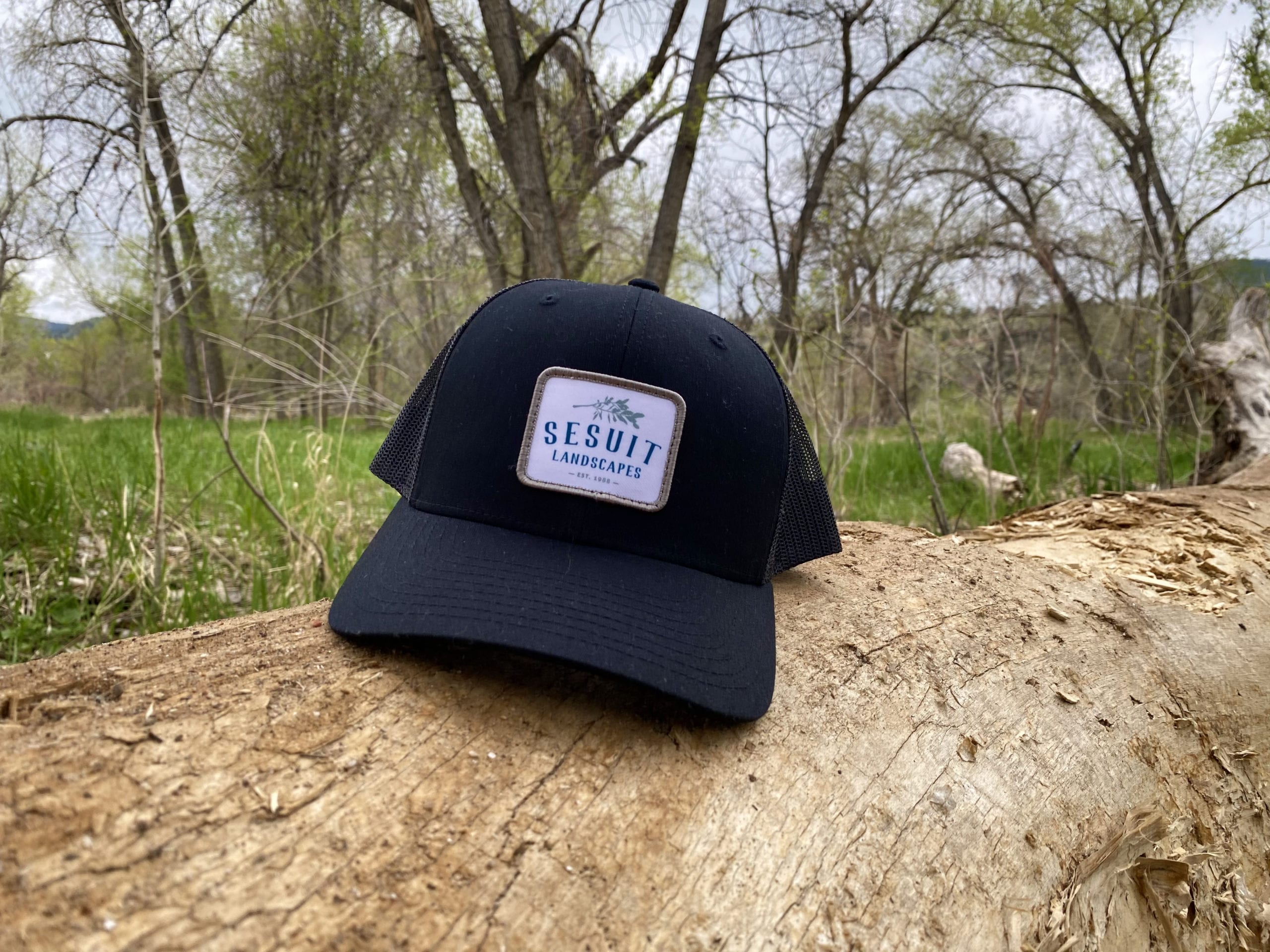
Day One: Gifts, The Vision, and + The Entrepreneurial Operating System (EOS)
To kick things off of the retreat, our Vice President, who happens to be my lovely wife, Kara Jostes guided us through some carefully curated gifts that she sent out to all of our Ramblers, with the help of our Executive Assistant Erin, here's a little bit about what that was like.
Kara:
And then you can open up this other wrapped item because you'll get a bell and you'll get a bell.
Kara:
So we all have bells that you can keep on your desk, but we'll ring them all together. That way, Jack doesn't have to be the only annoying one in the company, we can all do it.

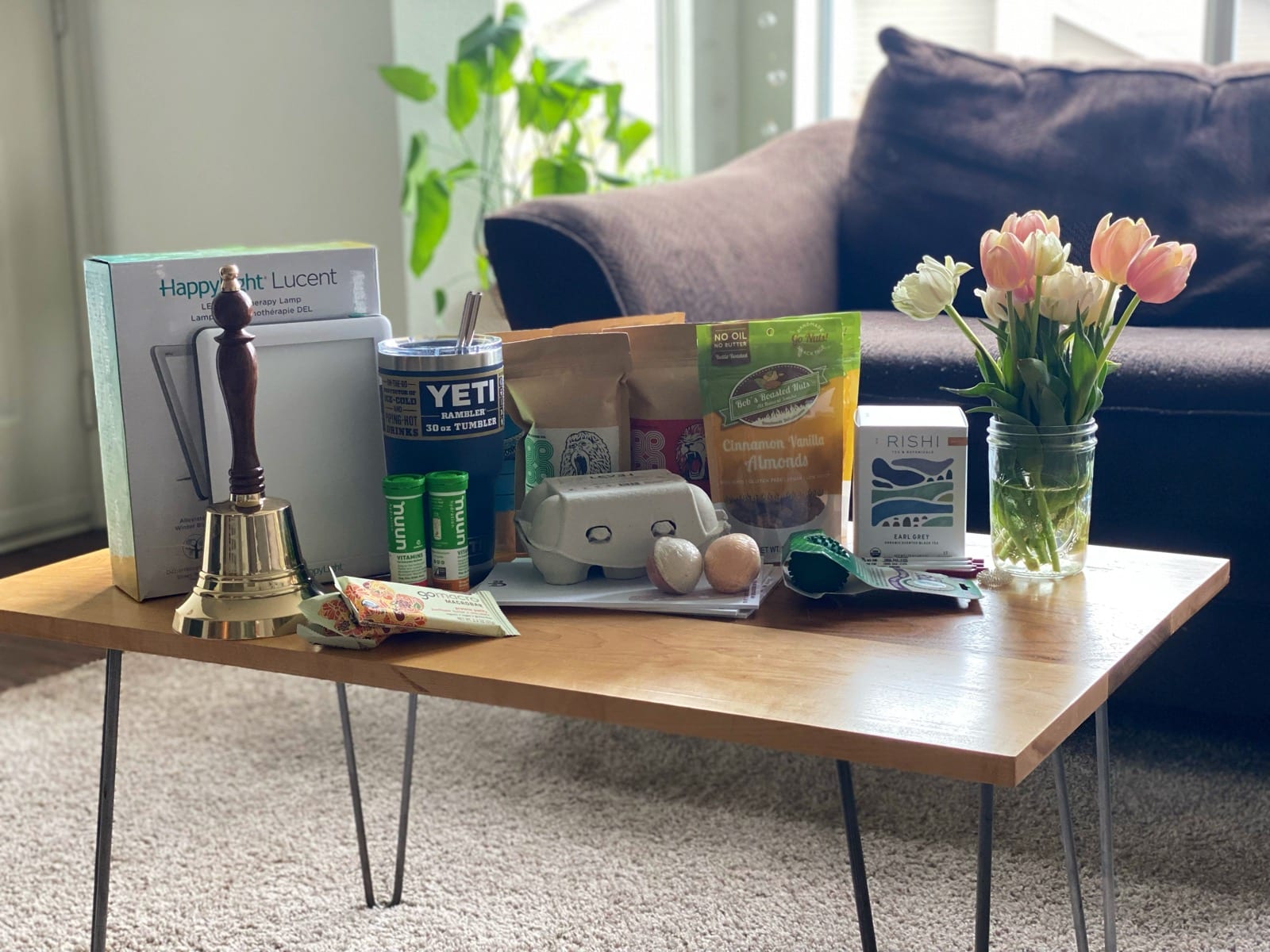
At Ramblin Jackson, our mission is helping small businesses ring the bell, and we've finally sent every single Rambler a bell. At Ramblin Jackson, we run EOS, the entrepreneurial operating system, which we learned from the book Traction by Gino Wickman. We've been working on implementing this over the last four years. And this year we had an entire company read the book. What the Heck Is EOS? A Complete Guide for Employees in Companies Running on EOS by Gino Wickman and Tom Bouwer. Now, you've probably heard me mention Traction in several podcast episodes because it's been a huge impact for us. And this book is really great because it's meant for employees. And by reading this, I feel like everyone really understood at a whole new level, how and why we operate at Ramblin Jackson. And then the employees came with a lot of great ideas. So to prepare for the retreat, we did the organizational checkup assessment, which you can do online for free. And shout out to Mike Kotsis, who is an EOS implementer who had a coaching call with me before this retreat and told me about that assessment.
Now, I'm super grateful that we got a 90 out of 100, based on the 14 people who work here. We got a 90 out of 100, as far as how our team feels like we are implementing traction. That assessment revealed that there were two key areas to work on. One was people and in particular, our accountability chart, which is like an organizational chart, except it answers better who is accountable for which outcomes in the company, or rather which role in the accountability chart is accountable for those outcomes. And the second area where we needed to improve was our data, which, in particular is our scorecard, which is something that we look at every week. Now, compared to even last year we've grown significantly. We're about to add another Rambler in the next month here. And with those things, that accountability chart and the scorecard, have just gotten out of date.
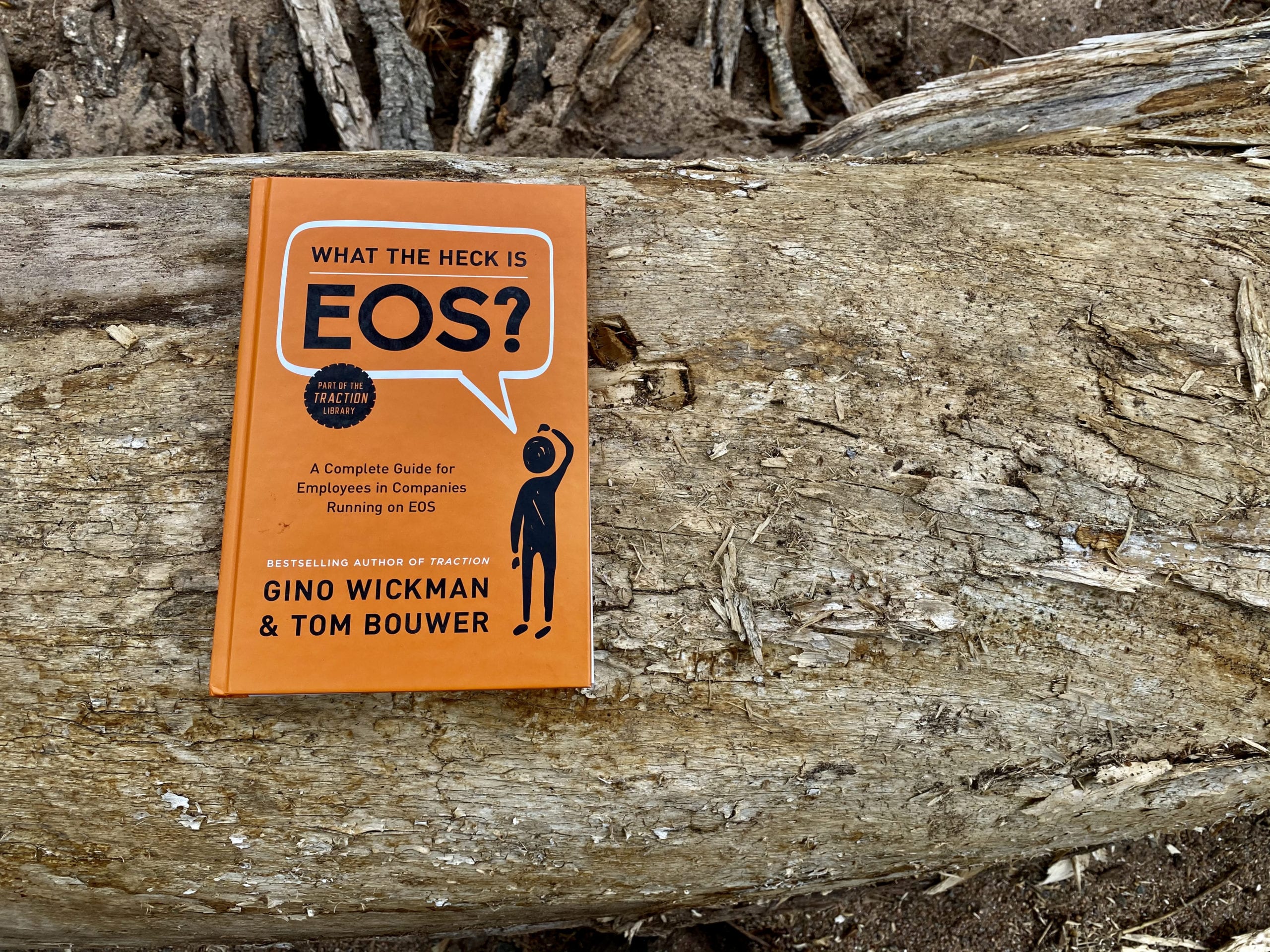
The EOS organizational checkup gives you scores on the six key components of the EOS framework, which is number one, vision, two, people, three, data, four, issues, five, process, and six, traction. One of the key takeaways from this workshop with the team was that they fully appreciate and understand EOS and how we're using it. And many of them realize the significant recruiting benefit it has had. And here's what one of our new hires had to say.
Drew:
Well, I did a search on Indeed and stumbled across the job posting, but I've seen thousands of job postings, not only as looking to apply to places, but previously I was in the career field myself and just the verbiage of how everything was written, explaining the company, the culture, as well as the... I liked that on the website, there was a video that Jack made breaking down the ideal candidate and all that. It just seemed like everything was really well thought out, really planned, really knew exactly what you were looking for. And by laying out all of that, it'll allow me to determine, is this what I'm looking for as well is this going to be a good fit for me. So that's what led me down the path to applying basically immediately, as soon as I saw the position and trying to fast track through the rest of the process, I was just really excited to connect and get on board here.
Another thing that really worked that I think you could do in your company was having everyone bring their own number to the meeting. So part of traction is having a company scorecard where everyone in the company has a number that they report about their performance every week. And one of the things that this book recommended that we did was have your employees bring their own number, and now they can collaborate with their manager and they'll have way more buy-in versus you just telling them that this is your number. So I'm super stoked because all the Ramblers brought really great ideas. And I know that our scorecard is going to be even better than if I just made it all up and we're going to have much better buy-in.
Day Two: The People of Ramblin Jackson
This next segment is brought to you by this glorious hat from Wayne Herring, with Business Builder Camp out in Schuylkill County, Pennsylvania. Now, I've worked with Wayne as one of our business coaches for over five years. And you've probably heard me mention him in a bunch of our podcasts because he's had such an influence on the work we do here. So I'm going to share a little bit more about how we brought Wayne into the retreat in a minute. Now, one of the things that we did to focus on day two, which was all about the people of Ramblin Jackson and the people at Ramblin Jackson are affectionately known as Ramblers. And one of the things that we do to really build relationships here is the personal histories exercise. Now, this is the third retreat where I've done this. I learned it from this field book, the Field Guide for Overcoming The Five Dysfunctions of A Team by Patrick Lencioni. It's an incredible book, all about growing a team. And this book follows the five dysfunctions of a team. And at the bottom of that is an absence of trust, then a fear of conflict, a lack of commitment, avoidance of accountability, and an inattention to results.

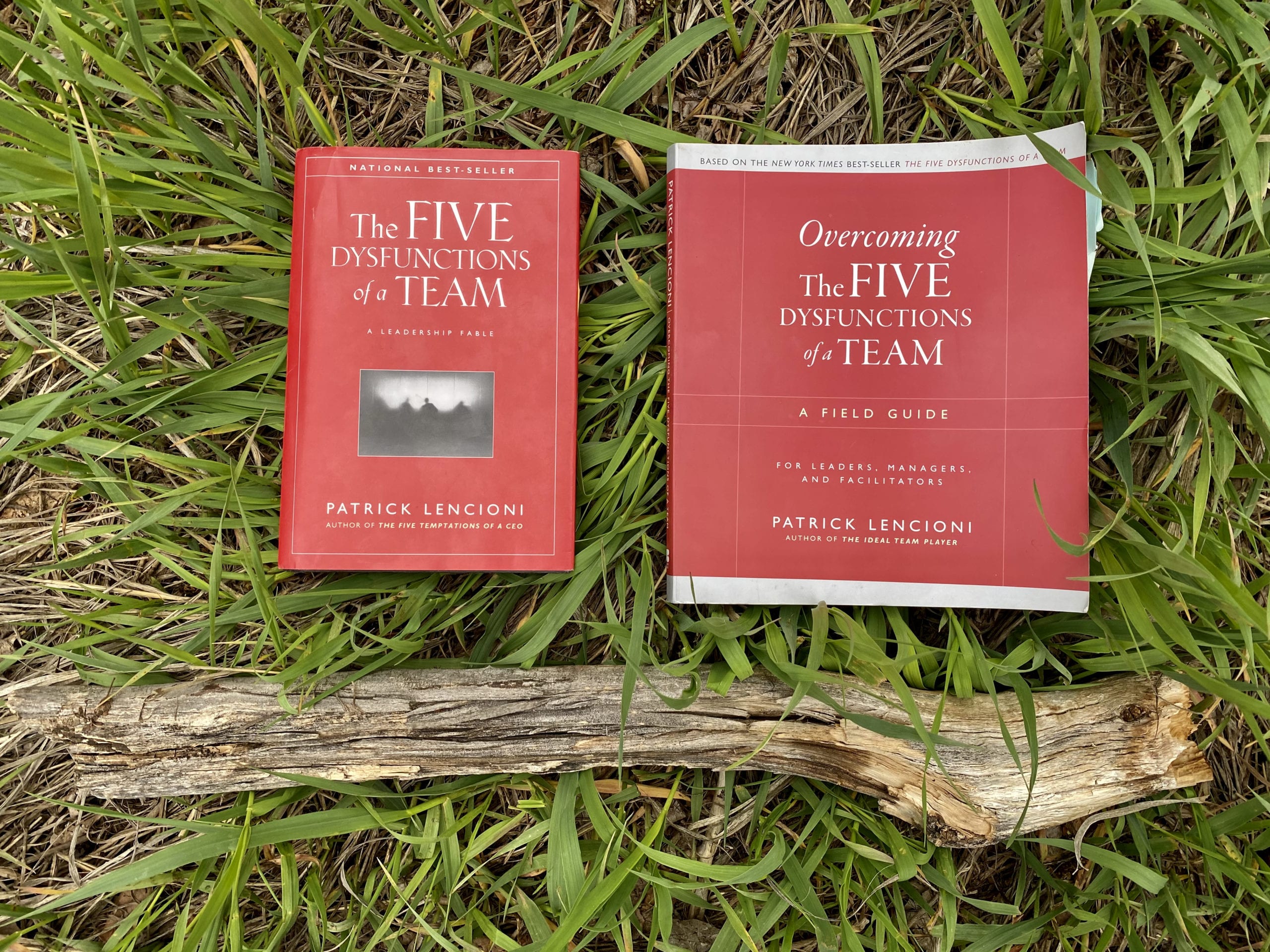
Now, a lot of times people know that they have the problem with the result that they're not getting and people aren't holding each other accountable. But I think you really need to look below that and get into the commitment, the fear of conflict and something at Ramblin Jackson that we embrace is rumbling. We embrace calm conflict and disagreement here, and it's because we do so much work to build trust. And so the personal histories exercise, essentially, you share some of the most challenging things from your childhood. You share how many kids were in your family. Where did you grow up in? What was the hardest thing about your childhood? And unless you're a sociopath, I don't know how you could go through this exercise without having a greater level of empathy and trust in your fellow... I thought something was coming up behind me there. All right. Getting spooked in the woods.
The personal histories exercise helps you share where did you grow up? How many siblings did you have and what was the hardest thing about your childhood? And I'm absolutely amazed by how vulnerable each of us were in that workshop. And unless you're a sociopath, I don't know how you could go through that without emerging with a stronger level of empathy, understanding and relationship with your fellow Ramblers. And that's exactly what we got, was a stronger relationship. And a lot of people commented about that particular exercise. In the afternoon, following that super heavy morning workshop, we invited Wayne Herring to come and talk to us about DISC, which is a personality assessment that is an acronym for dominance, influence, steadiness and compliance. And if you see our show notes and a link to our blog post, I have a whole other episode about how we use DISC.
And this year though, we actually got several of our clients to take the DISC assessment and Wayne showed us those. So we got to learn not only about our own DISC, our own personality assessments, but our clients, and a lot of our clients have very similar personalities, but that are also different. Another key thing we learned this year was about driving forces, which are the reasons why you do what you do. It's really about motivation and Wayne charted us out on this graph and it was overall, it was really great because everyone understood why we have different people here. What do they do? Who's energized by what? Oh, wow. I'm glad that we have people who enjoy doing that sort of thing because I certainly don't. And that was an amazing workshop.
Wayne:
But this is why you do what you do. And it's a layer deeper than behaviors. Behaviors I can observe, but this, I would really need to get to know somebody, I'd need to ask some questions and listen, I'd need to find out what they did on the weekend. I'd need to find out what they do with their money or why they make money and where it goes, or I'd have to find out what they do with their time or any other excess time or where they work and do they find fulfillment in that? You got to get to know people. And like the exercise that you all did before I came on, certainly helps with that. Getting to know people's personal histories. When I saw that list of questions that Kara put together for all of you to have like this booklet, to know each other, it was like, wow, that's cool. Every company should be doing something like that.
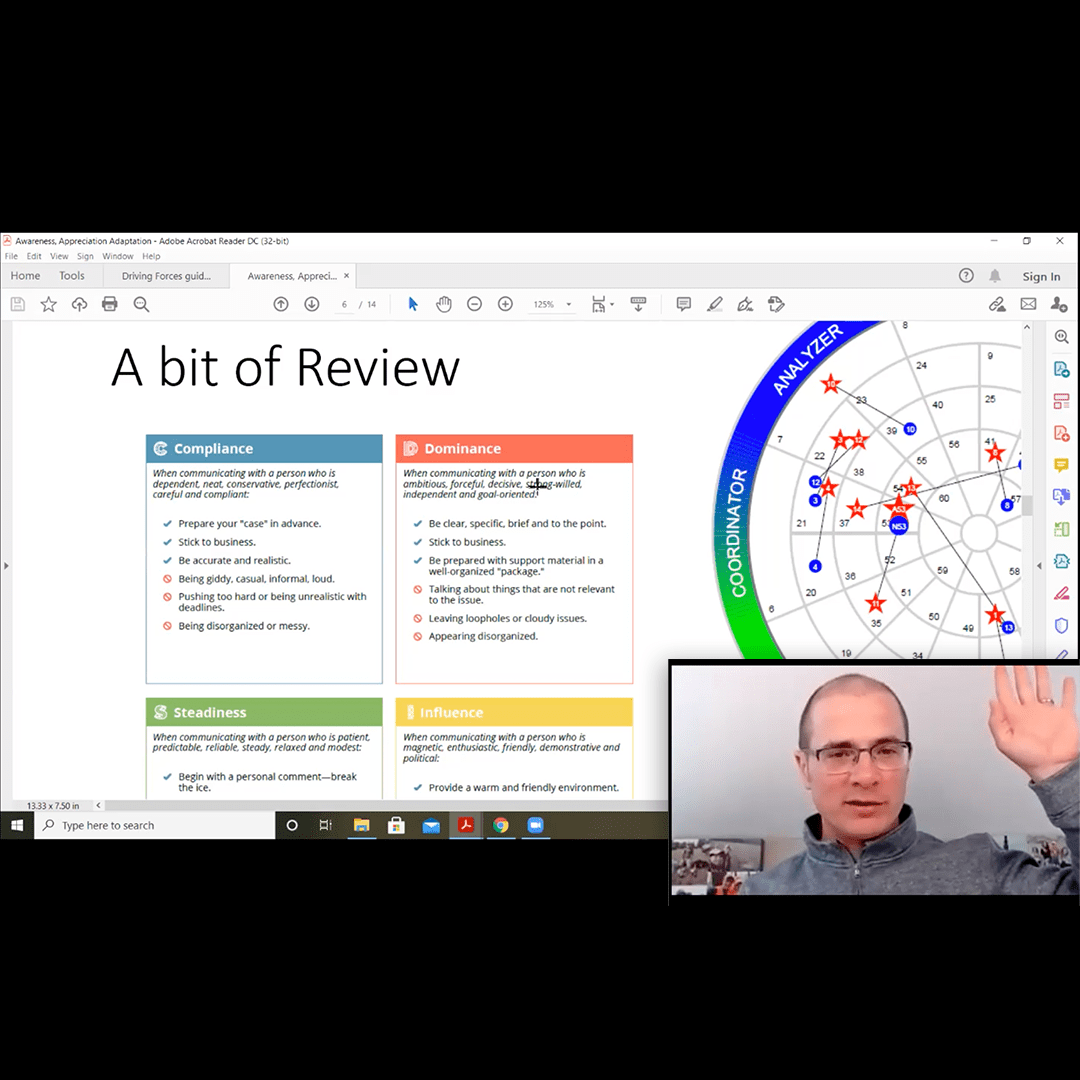
Lastly, we ended that part of the workshop with show intel, where people brought things that indicated a little bit more about their personal life. We got to see our web developer Lou's dogs from Pennsylvania.
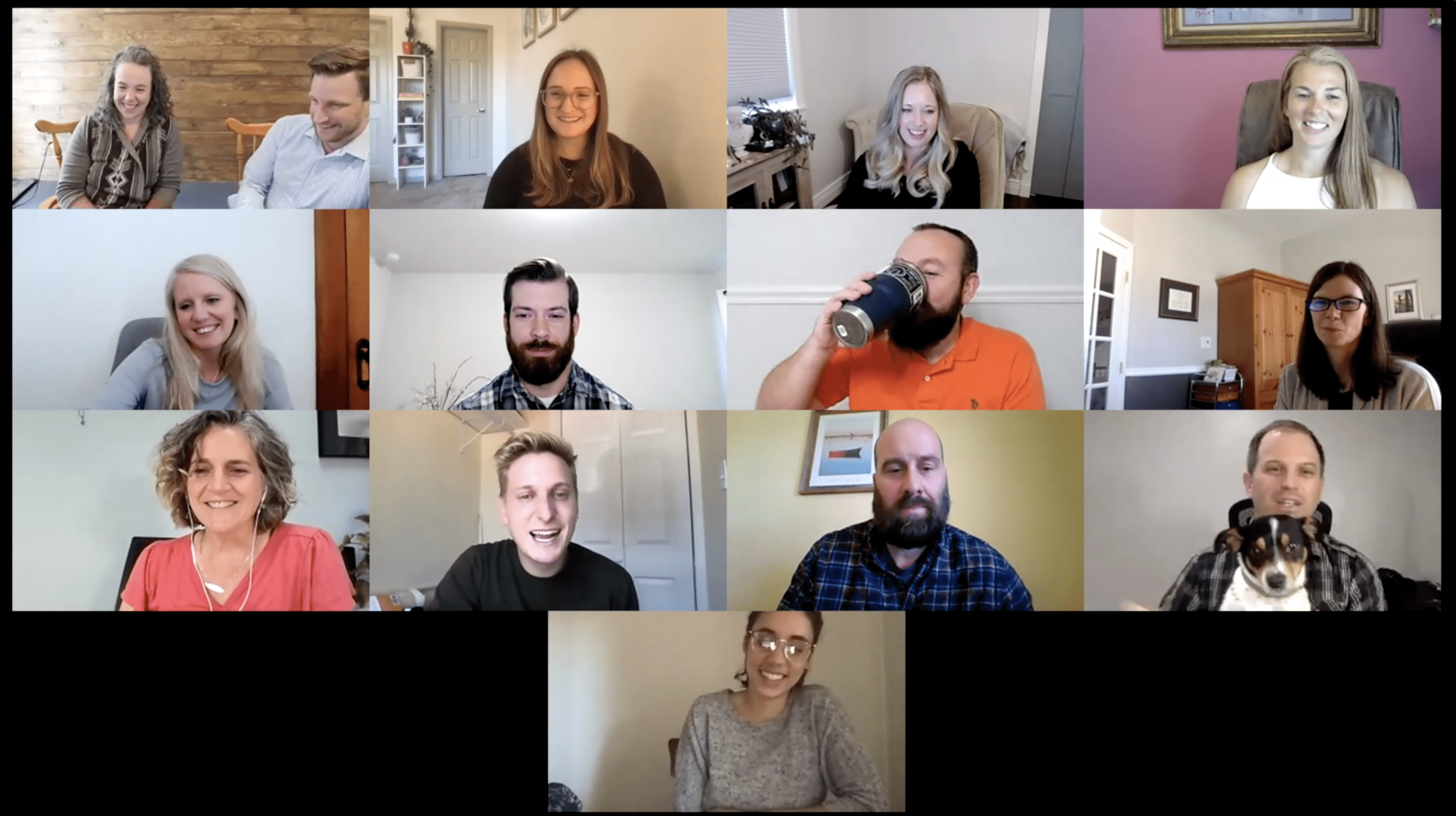
We got to see our account coordinator Kristen's amazing front porch in Nebraska.
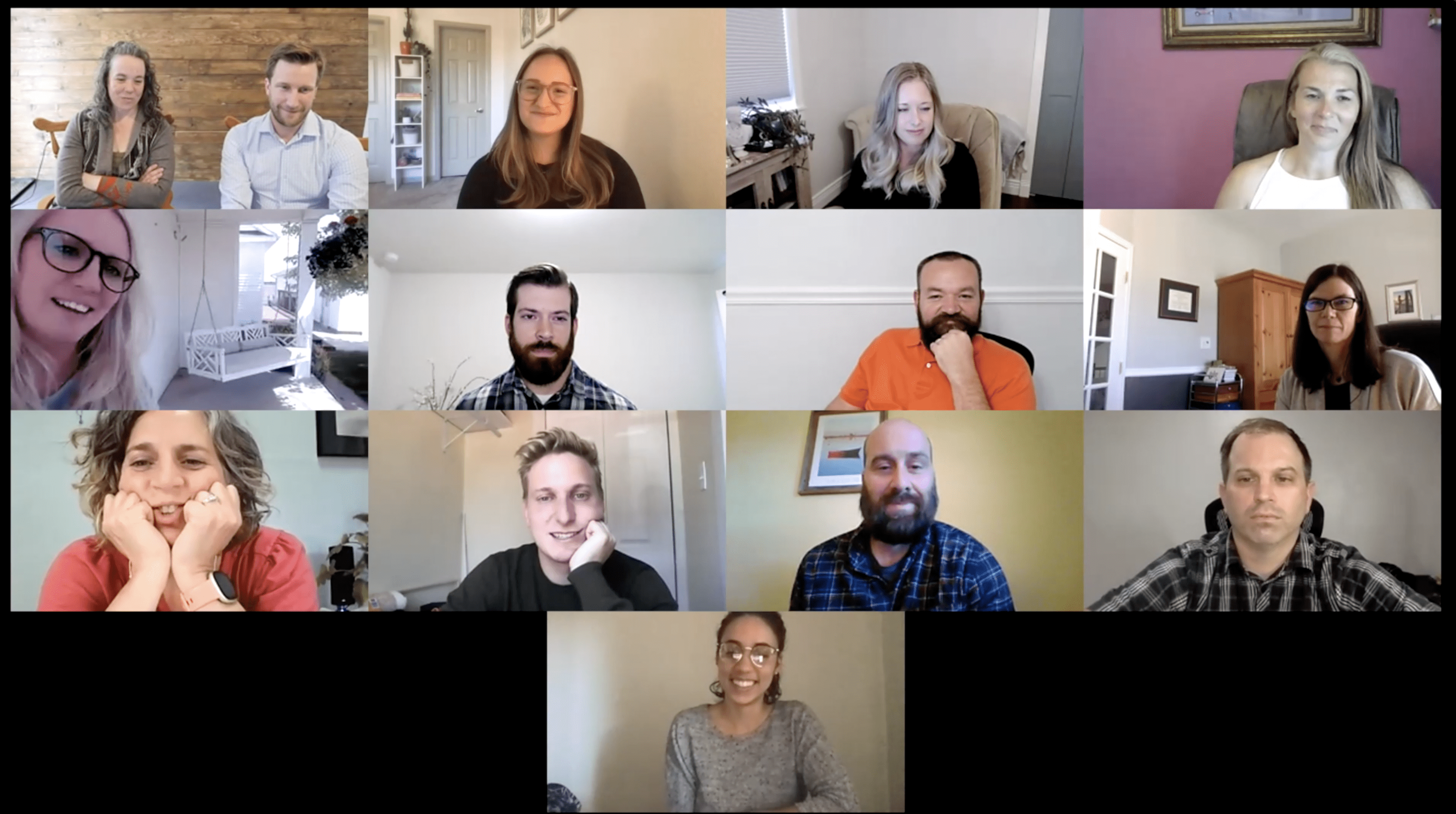
And we saw an incredible photo of our local SEO strategist, Kevin's grandfather who served our country in World War II.
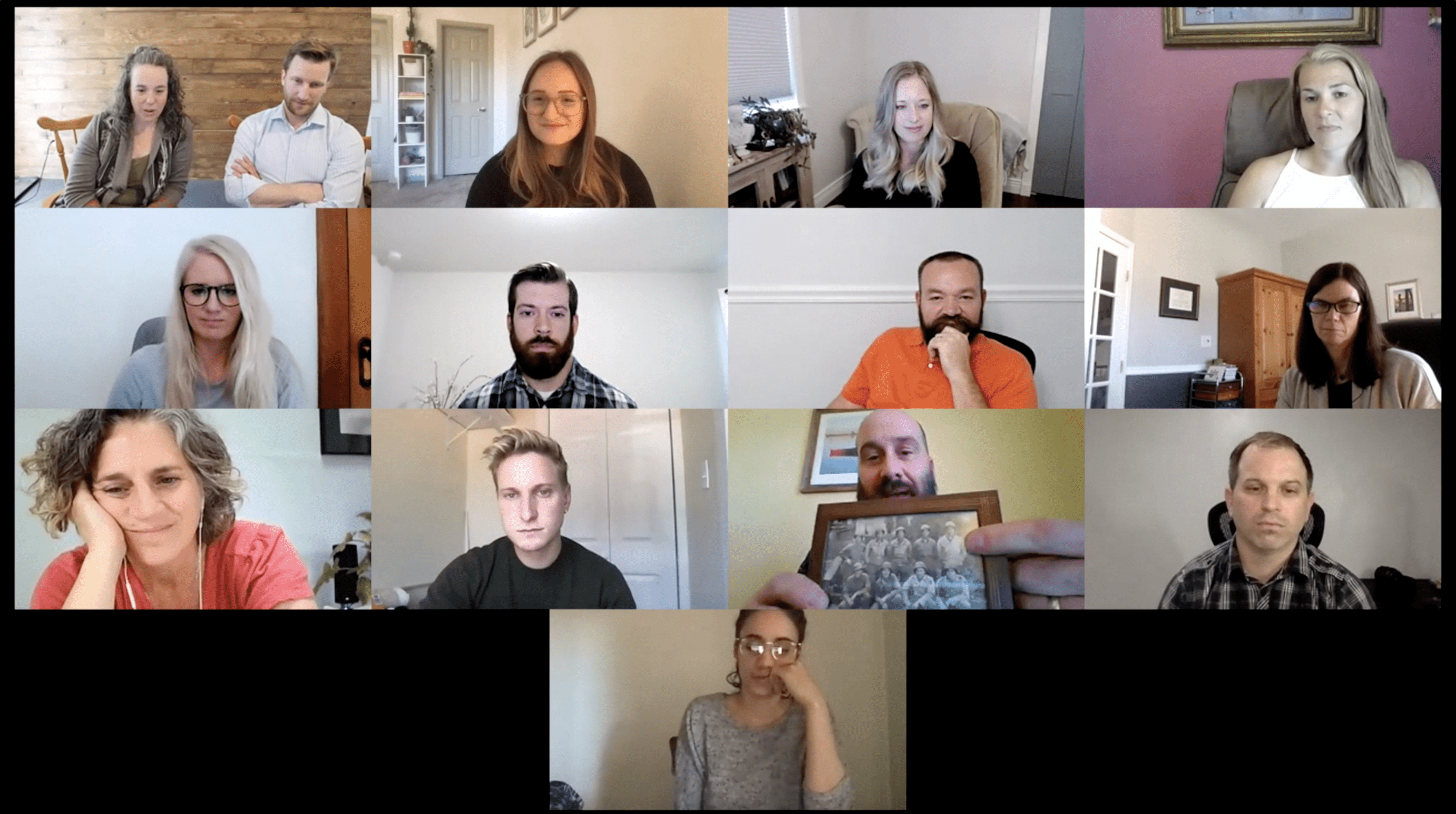
And a whole lot more. Overall, it was a lot of fun. We got some serious work done and we got to know each other better. Does your company use personality assessments? Not only if I use these to recruit and hire the right people, we also use them to manage, train and inspire our team. And not only has it had a big impact on my working relationships, it's also had a big impact on my marriage. So I encourage you to check out personality assessments. We use DISC there's a whole bunch of different ones. I'm really curious to know what you use. So let us know. The third day was focused entirely on our great customers. And speaking of great customers, shout out to our tree people, Blue River Forestry & Tree Care in Longmont, Colorado sent me this shirt, couple of years ago, it's all stretched out. It's one of my favorite shirts. And then this sweet beanie, you guys have some of the best apparel. We got to shoot a video for you, and you've got to check it out there. Your apparel is awesome. So thanks for sending some of this.
Day Three: Raising The Stakes On Ramblin Jackson's Customer Experience To Help Small Businesses Ring The Bell
This year, we did a customer journey workshop again, and we picked up where we left off last year. So last year we actually hired Joey Coleman, who's a public speaker who wrote the book The First 100 days. Which is essentially that if you nail your customer experience in the first 100 days, you can earn a client for life. But if those first 100 days aren't great, you're way less likely to retain a client. I think this is super important for those of you who do maintenance, any of you, where you have an opportunity for repeat business, especially commercial. Where if you really stoke those clients out in those first 100 days, you're going to be able to retain those clients, increase your profit and spend less to acquire new customers through marketing. If you simply focus on doing a great job for your current customers.
So this year we focused on our process, our customer journey and we focused equal parts on the three divisions of Ramblin Jackson. There's really the design part where we're doing sales, marketing, and strategy, the build part where we're in the project, where we're building people's websites. And then there's the third part, which is our maintain or our growth division rather, where our accounts team is helping retain our clients, helping them with their reports and helping you really continue to maintain what you have and get the results that you want. And so we actually looked at the first 100 days for each part and thought about how can we pass the baton to the next department and really maintain that communication. Our mission at Ramblin Jackson is helping small businesses ring the bell. And we sent a bell to every Rambler this year.
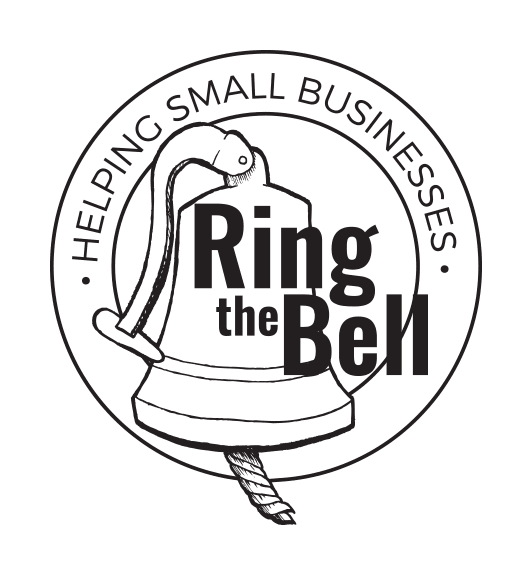
And we thought about how can we help our clients uncover what is helping you ring the bell actually mean? It's typically something around sales or marketing, or it could be around recruiting or it could be reaching a revenue milestone. Whatever that goal is, we want to carry that through the entire length of the project. And we now have a system for taking that, organizing it in our CRM and then celebrating when you reach that goal. So if you're a current customer, reach out to your account manager and see, hey, we literally are going to send you a big ass bell that you can mount in your sales room so you can celebrate wins with your team. It's a great way to inspire your team. But think about your clients, your design build clients who maybe someday become a maintenance client. How can you take the specific things that they tell you on that first call or that first site visit and then during the project, how can you make sure all of that gets transferred to the maintenance department so they're on it and you're really taking care of your client. If you focus on that, I believe that you too can have a lifetime customer.
Ramblin Jackson Client Panel
In the afternoon, we did a client advisory panel where we invited seven of our top clients to take a personality assessment, the same DISC assessment that we do internally, and then come and meet with us and talk to us specifically about the good, the bad and the ugly of working with Ramblin Jackson. Now, getting a landscaper to do a half day of anything that isn't landscaping during springtime is a tall ask. And first thank you for coming and doing that. And second, we know that by showing up everyone we asked, said yes, that there's already a good level of Goodwill. And it was kind of uncomfortable, we know it was, we asked you for some constructive feedback, but we learned a ton. And in particular, the Ramblers who are not client facing got to meet you and hear directly from you in a way that they normally wouldn't. And here's what some of them had to say.
Jeni:
I was just going to say, I mean, it was great for, I know I can speak for myself being one of the employees here that really works more behind the scenes and doesn't get as much one-on-one client work. It was really great. Just getting to hear all of your stories and learn more about your experiences working in the industry. Because it really gives us all a lot more information and background about what we're doing and who we're helping. So thanks for spending time with us.
We learned a ton, our clients learned from each other. One of them is actually implementing EOS like we are, so many of our clients said that that was a takeaway. So check out that book Traction And What The Heck is EOS? And one thing's for sure, the most successful business owners that I know in the green industry, in my industry and any industry understand that marketing is important.
Jeff Riddle:
Good to be here. Love working with the Ramblin Jackson team. I'm Jeff Riddle, I own Alterra Landscape Design. We are primarily high end residential design and build. Alterra is four years old. We started it in early '17 and we were only four years old, but we're trying to create something and marketing ties it all together. It says, who are we to the world? And then it uses that to create demand and to create opportunities for us and hopefully enough of them so that we can be choosy. And I love to have an advantage as a business owner. I don't like to go, just compete, head to head with all the competitors. Dallas is a huge place and there's literally a thousand people here doing landscaping, unless you have an advantage, it's just a miserable life.
Jeff Riddle:
And so marketing ties all that together. How we communicate, what we do and providing a better experience for our clients. And then all of that drops, we hope the bottom line, you run a profitable business, when people aren't really thinking that much about what it costs, they've heard from their friends, "Hey, Alterra is fantastic to work for or with, we loved them, it was a great experience." And then when we command a higher price, we're a whole lot more likely to get it. Marketing creates an image that we want to build, basically.
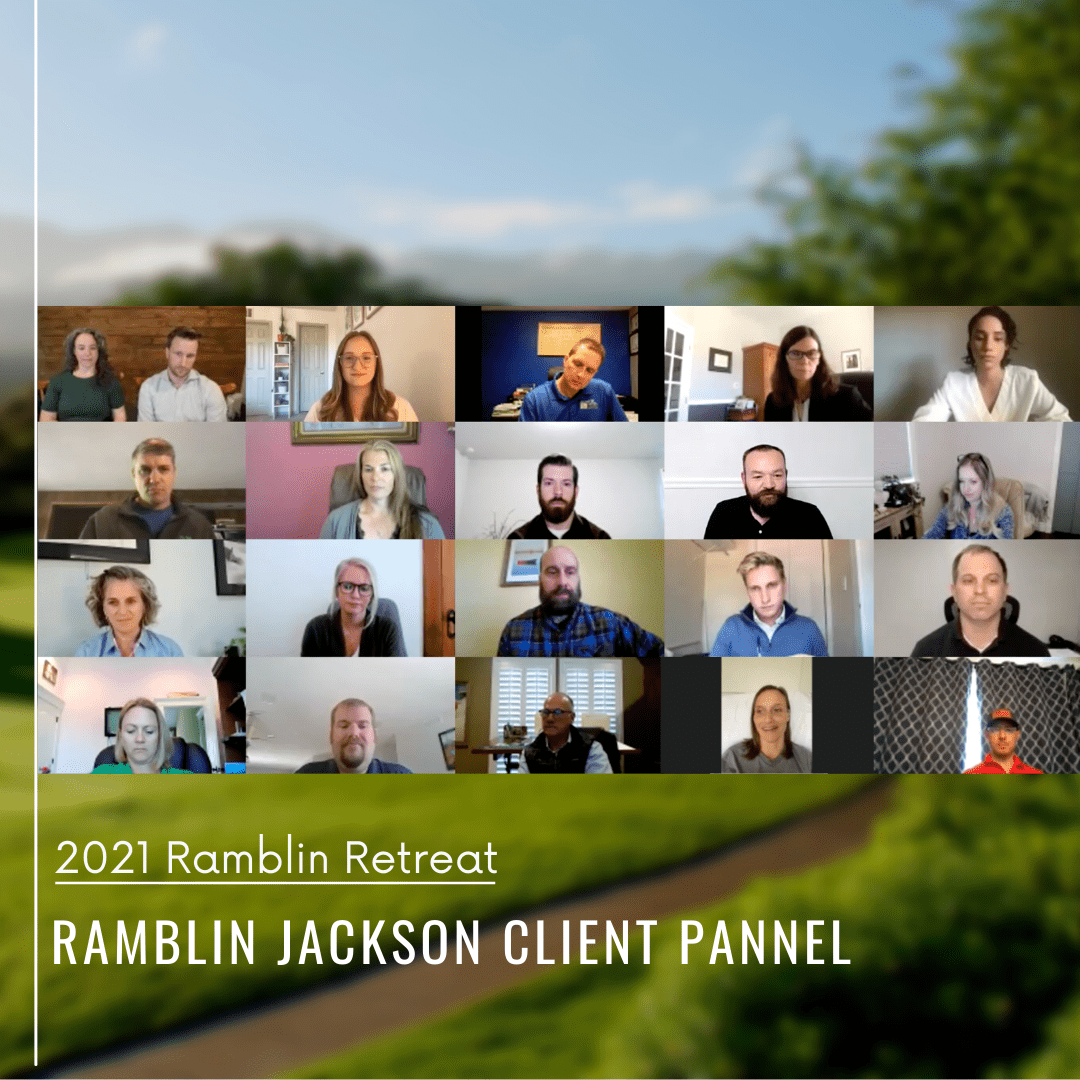
The client advisory panel was absolutely the highlight of the whole retreat for me. And it was also exhausting, but it made me realize how much I really appreciate the green industry. The green industry just has some of the best people. And we are so thrilled to know that you run great businesses. We love hearing about the people who work at your companies. We love hearing about the rock yard or wherever you go and get supplies and the nurseries that you buy from. It's so great to be part of this industry. And it felt like the way I feel when I go to the green industry trade shows and I'm surrounded by you all for a week. And I can't wait to get back to some of those later this season.
Day Four: Dress Like A Landscaper And Reflect
On the fourth day, we didn't plan anything in the morning other than to work on something really important. So Ramblers got to pick something that they needed to work on that either came out from the retreat or maybe personal development wise. I personally worked on our company accountability chart and got it to 95%. The remaining 5% is going to be meeting with our operations manager, Jessica, to help get it done. On that day, we also for fun dressed like landscapers. So that was the only instruction I gave was to dress like a landscaper. Today, I'm wearing some sweet clothing from Austin and Crystal Woodworth from Modified Landscape Design. Thank you for sending me this sweet hoodie. It's just starting to rain, so this is keeping me warm, this awesome hat and some Carne asada spice. I'm like, this was straight from California, it was so good. I made some burritos that were really tasty.
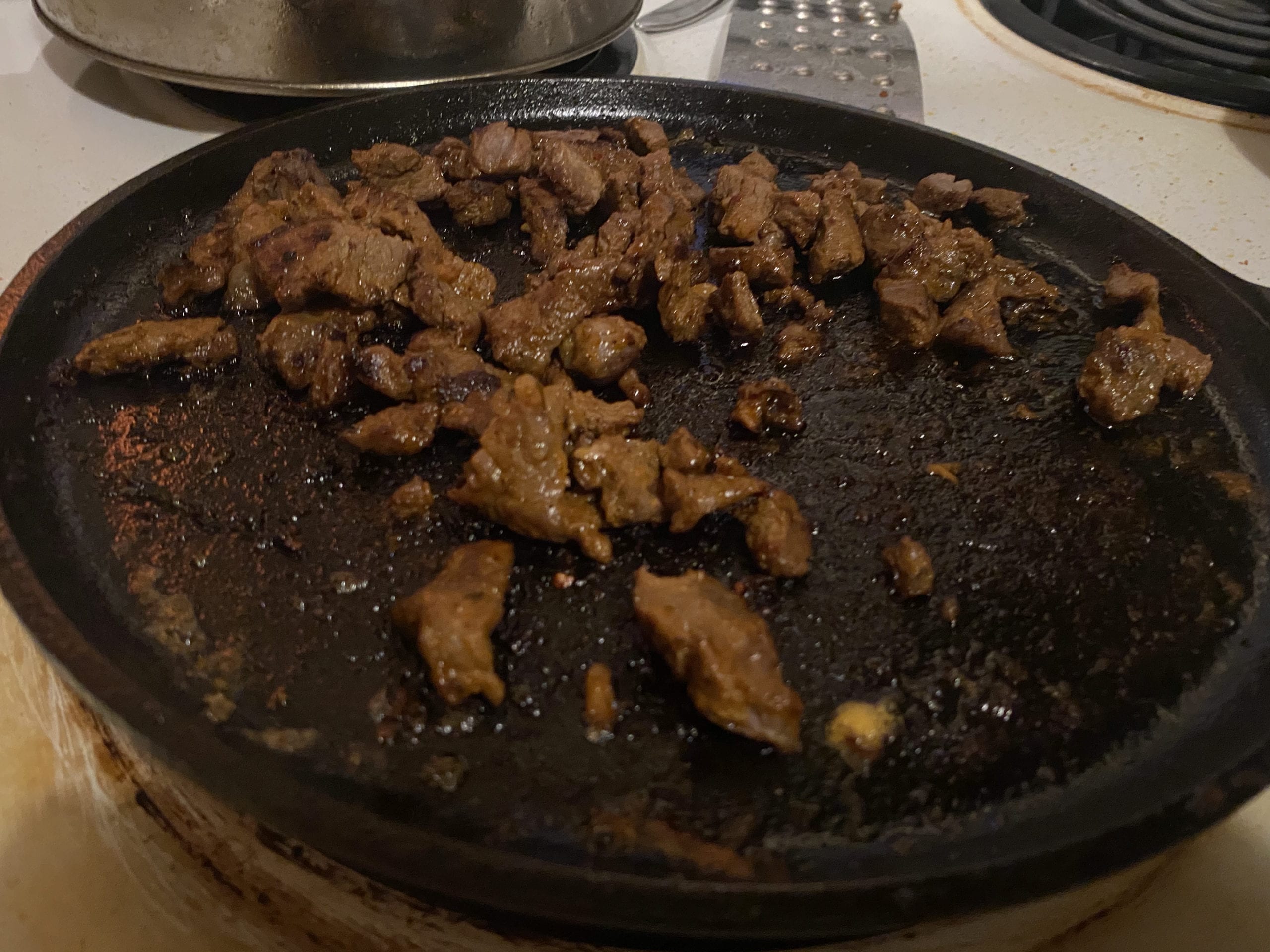
For dress like a landscaper day Account Manager, Brian showed up ready for the sun. Project Manager, Nina, was ready to tend to some plants. And our new Account Manager, Drew, stole the show with a chainsaw. It was an incredible retreat.
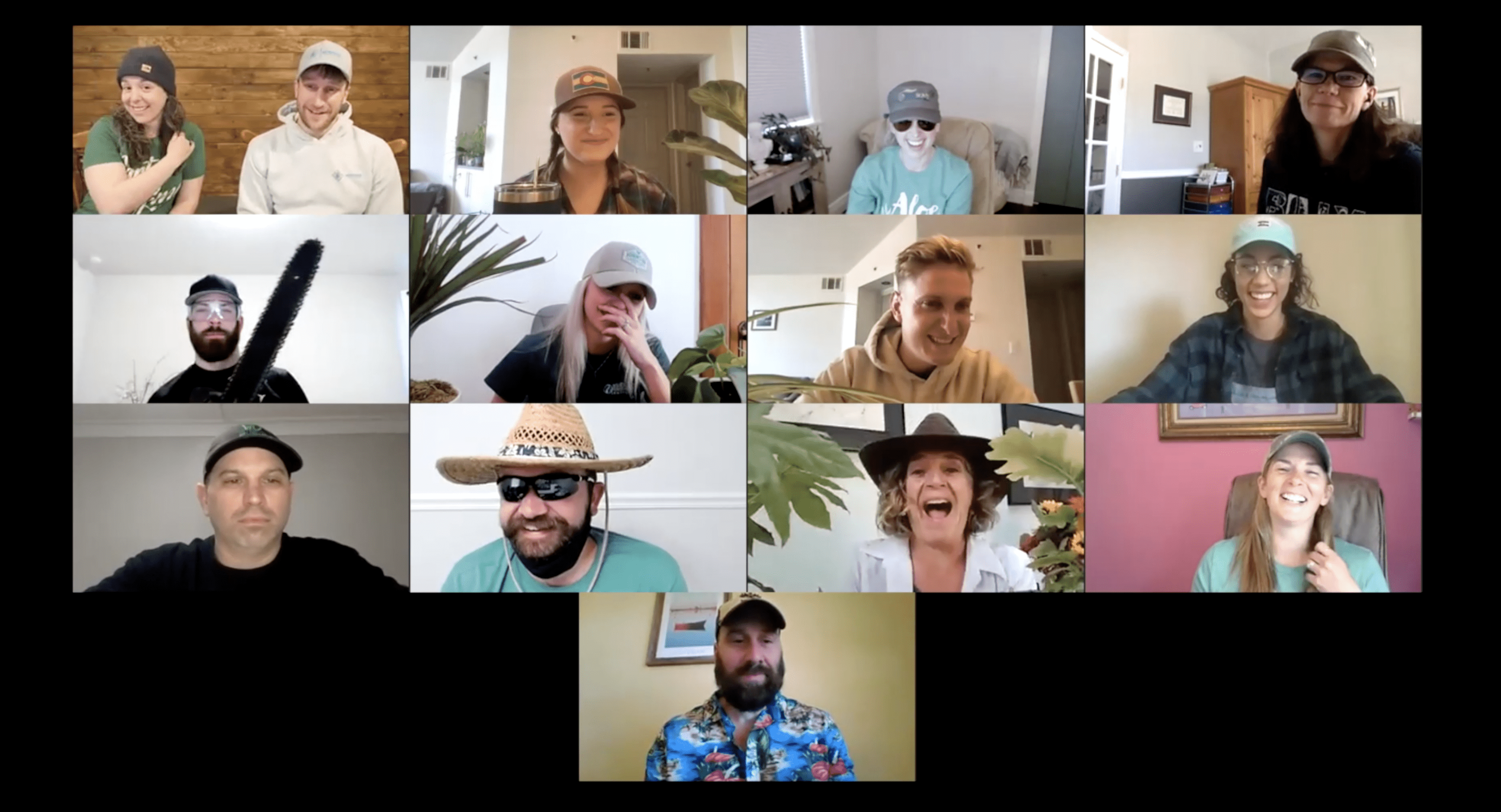
Retreat Takeaways
There were three key takeaways that I wanted to share with you.
1. The first one is that creating time and space for your team to build relationships, whether you're virtual, like we are, or if you're in person, because you can be just as busy in person and still be in an office, is incredibly important. And it really helps build a team. Here's what some of our Ramblers had to say about their experience with that.
Brian:
But the value of just being vulnerable, I think that's huge for a team and that's something that... I've worked at five or so places in 20 years, and I, other than maybe a handful of people that you would get to really know and have those rollable relationships and you wouldn't have this across the board, so that's huge. I want for people to recognize how important that is, it really is because that trust because man, if you're willing to be vulnerable to someone enough to trust them, to not then take that and talk about you behind your back or to in some way, manipulate or use that against you, that's really important.
2. The second takeaway is that the retreat gave us some time to dream and brainstorm. We had some looser agendas. That's one thing that I've absolutely learned having done this three times is this one had the least amount of content on the agenda. The first year I had way too much plan, it was really cramped. I found that a lot of times less is more so that way you can, if you're on a good brainstorm, you can really run with it if you need to. And what's different about this though, is it wasn't just an unstructured brainstorm, we had things planned, problems, issues identified. So they were very productive brainstorms. And here's what our project manager, Rebecca, had to say about it.
Rebecca:
I liked what you had said Jack, about giving space to outside of the normal routine and just think on things a little bit more. I think I overloaded Jessica this morning with idea box stuff and my Trello board is loaded with stuff I'm excited about.
3. The third takeaway was that getting client feedback and Rambler feedback was really helpful to strengthening our process. So we're building something repeatable here so we can achieve our mission and our vision of growing to be a $10 million marketing agency with a wild frontier landscape client in every major US city. I believe we can do it, our clients believe we can do it. And I shared that vision with our clients and one of them called me and said, "Hell yeah, I believe you can do that." But getting that feedback, now we collect net promoter score at Ramblin Jackson through Ramblin reviews and we absolutely listen to that. We call clients, but getting them all together to get feedback was unlike anything I've ever done. So again, you could probably do that too with your lawn and landscape company, have dinner, bring some of your clients together and learn from them.
So hopefully, you've learned some things from this. Let me know. Do you run a retreat for your company? What's working for you? Post a comment, if you can post a comment where you're seeing this or send me an email jack@landscapersguide.com, I'm always happy to brainstorm ideas and share some of the resources that we're using and learning from as we're growing our company. My name's Jack Jostes. And thanks so much for checking out this episode of the Landscaper's Guide To Modern Sales and Marketing podcast. Check out other episodes at landscapersguide.com/podcast, where you can see full transcripts, links to all the books and different articles and things that I talked about today. And I look forward to seeing you next week.
